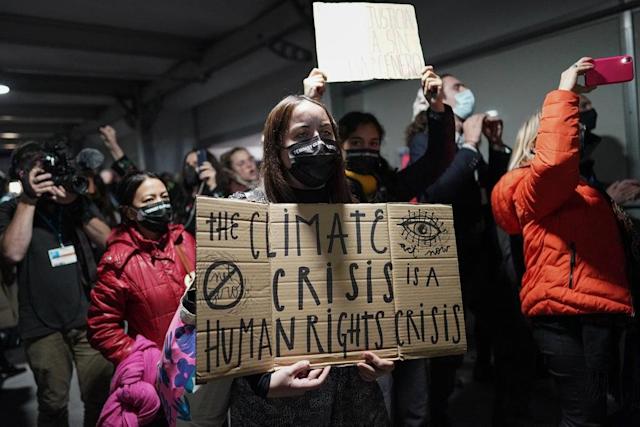ClientEarth (CE) and Friends of the Earth (FoE) have separately sued the UK government over its net-zero climate strategy, which lawyers argue illegally fails to include the policies needed to deliver the promised cuts in emissions.
In court papers filed on Wednesday, January 12 by ClientEarth (CE), it claimed that the failure to meet legal carbon budgets would contravene the Human Rights Act by impacting young people’s right to life and family life.
Recall that the net-zero strategy was published in October and included commitments to end the sales of new fossil fuel cars by 2030 and gas boilers by 2035. It however failed to spell out how the strategy would be delivered or specify the cuts in emissions to be achieved in each sector.
“Instead, it relied on speculative technologies such as zero-carbon aviation fuels and extracting carbon dioxide directly from the air and burying it” the lawyers said.
While ClientEarth has defeated the government three times in court in recent years over inadequate air pollution policies, court victories by Friends of the Earth include a case about the cost of bringing environmental claims against ministers.
Both FoE and CE argue that the Climate Change Act requires ministers to set out policies to meet carbon budgets “as soon as reasonably practicable” after they have been set.
The assessment included in the net-zero strategy shows UK emissions being double the level allowed in 2035 and missing targets in 2025 and 2030.
Lawyer Sam Hunter Jones at CE was quoted as saying that a net-zero strategy needs to include real-world policies that ensure it succeeds.
“Anything less is a breach of the government’s legal duties and amounts to greenwashing and climate delay,” he said. “The government’s pie-in-the-sky approach pushes the risk onto young people and future generations who stand to be hit hardest by the climate crisis.”
Read also: Nepal PM Deuba launches campaign to raise awareness on climate change
Additionally, the FoE action claims that another government strategy, on heat and buildings, failed to assess its impact on groups protected in law, including children, people of colour and those with disabilities. Previously, FoEfound that people of colour were twice as likely to be living in fuel poverty as white people.
Katie de Kauwe, an FoE lawyer, was also quoted as saying “We know that those who do least to cause climate breakdown are too often the hardest hit,”. “Climate action must be based on reversing these inequalities, by designing the transition with the most vulnerable in mind. Not even considering the implications of the heat and building strategy on such groups is quite shocking.”
In October, the Climate Change Committee (CCC), which is the government’s official advisers said that the net-zero strategies were a “big step forward” and the most comprehensive among G20 countries. But its assessment said: “The government has not quantified the effect of each policy and proposal on emissions. So … it is not clear how the mix of policies will deliver on its ambitions.”
The CCC highlighted a lack of policies on energy efficiency in homes following a botched green homes grant scheme, on farming, and on reducing the amount of meat and dairy people eat and the number of flights taken.
CCC chief executive, Chris Stark said, “It’s a very market-led strategy,”. “We shall see how that fares.”
